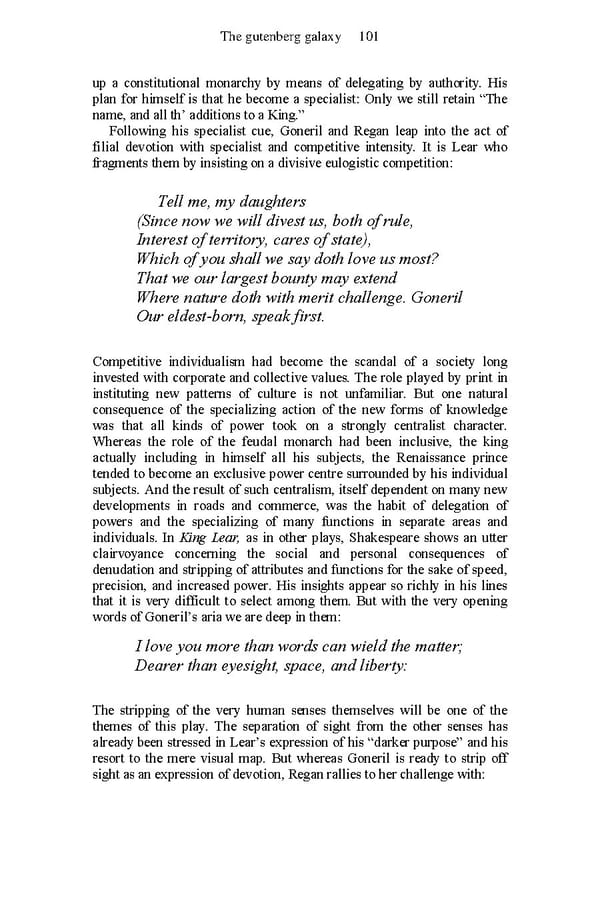The gutenberg galaxy 101 up a constitutional monarchy by means of delegating by authority. His plan for himself is that he become a specialist: Only we still retain “The name, and all th’ additions to a King.” Following his specialist cue, Goneril and Regan leap into the act of filial devotion with specialist and competitive intensity. It is Lear who fragments them by insisting on a divisive eulogistic competition: Tell me, my daughters (Since now we will divest us, both of rule, Interest of territory, cares of state), Which of you shall we say doth love us most? That we our largest bounty may extend Where nature doth with merit challenge. Goneril Our eldest-born, speak first. Competitive individualism had become the scandal of a society long invested with corporate and collective values. The role played by print in instituting new patterns of culture is not unfamiliar. But one natural consequence of the specializing action of the new forms of knowledge was that all kinds of power took on a strongly centralist character. Whereas the role of the feudal monarch had been inclusive, the king actually including in himself all his subjects, the Renaissance prince tended to become an exclusive power centre surrounded by his individual subjects. And the result of such centralism, itself dependent on many new developments in roads and commerce, was the habit of delegation of powers and the specializing of many functions in separate areas and individuals. In King Lear, as in other plays, Shakespeare shows an utter clairvoyance concerning the social and personal consequences of denudation and stripping of attributes and functions for the sake of speed, precision, and increased power. His insights appear so richly in his lines that it is very difficult to select among them. But with the very opening words of Goneril’s aria we are deep in them: I love you more than words can wield the matter; Dearer than eyesight, space, and liberty: The stripping of the very human senses themselves will be one of the themes of this play. The separation of sight from the other senses has already been stressed in Lear’s expression of his “darker purpose” and his resort to the mere visual map. But whereas Goneril is ready to strip off sight as an expression of devotion, Regan rallies to her challenge with:
 Essential McLuhan Page 107 Page 109
Essential McLuhan Page 107 Page 109